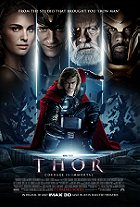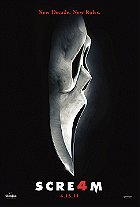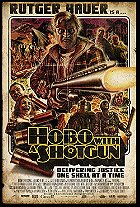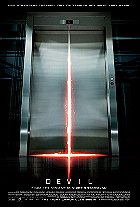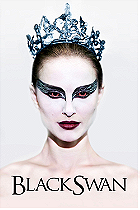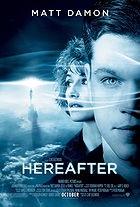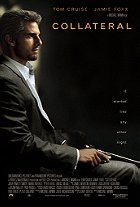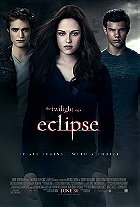A more suitable title for Battle: Los Angeles would be Battle to Stay Awake. A meandering, often tedious instance of blockbuster filmmaking, Battle: Los Angeles appears to have been designed as either a military recruitment video or the ultimate home theatre system "demo disc" (or both). At its most basic level, this is a wearying display of shaky-cam mayhem featuring a cast of cardboard cut-outs; a film eager to go wild with money shots but is negligent in terms of providing a reason to care. Roger Ebert said it best in his hilarious review: "Young men: If you attend this crap with friends who admire it, tactfully inform them they are idiots. Young women: If your date likes this movie, tell him you've been thinking it over, and you think you should consider spending some time apart."

Adhering faithfully to formula, the film commences as cities around the globe become inundated by meteor showers. The meteors are not regular meteors, however, but alien machinery. It isn't long before spacecrafts and aliens begin obliterating global cities with the palpable goal in mind of exterminating human life and colonising the planet. With the invasion intensifying, a Marine squad heads into Santa Monica to evacuate the city before blasting it to oblivion in an attempt to halt the advancing alien activity. Leading the charge is Staff Sergeant Michael Nantz (Eckhart), who is called back into duty after a harrowing tour of Afghanistan. Storming the city with all guns blazing, Nantz's platoon encounters numerous alien warriors and aircrafts armed with superior firepower. Raising the stakes is their discovery of a group of civilians, whom they vow to protect and lead to safety.
Battle: Los Angeles's script was credited to Christopher Bertolini, but it is unclear what exactly he was responsible for. The film is literally two hours of interchangeable, forgettable faces shouting at each other, shooting things, blowing shit up and getting killed. The dialogue is almost entirely made up of people shouting "Watch out!", "Get down!", "Move!", "Fire!", and the derivatives of these screams. The soldiers are one-dimensional stereotypes, and the civilians are bland. The only thing telling us we should care when a character dies is the overbearing music. Once the titular battle gets underway, the soldiers are reduced to random, indecipherable figures without defining characteristics who shoot guns and wear battle fatigues (except Eckhart and Michelle Rodriguez, but only because they are recognisable stars). For fuck's sake, when it came time to assemble a cast list for this review, I did not know who to bill first beyond Eckhart and Rodriguez! All the best action/war movies develop their characters in the heat of battle. Take Black Hawk Down, for instance. Nobody behind Battle: Los Angeles was talented enough to pull this off. Though, credit where credit is due, the actors do seem to try to do something substantive with their underwritten roles, rather than sleepwalking their way through the film for the sake of their paycheques.

There are very few L.A. landmarks to be seen throughout the film, reducing Battle: Los Angeles to a repetitive barrage of sequences depicting soldiers firing weapons in nondescript streets and walking around dank, desolate buildings. Unfortunately, the cinematography is frequently shaky to the point of nauseating - it's as if the cameraman is always wandering around bumping into things. Sure, director Jonathan Liebesman at times delivers in terms of action, and there are a few spectacular money shots thanks to some solid special effects. But there's never any awe to the apocalyptic events - the film feels like a pedestrian video game rather than a harrowing war film. Furthermore, armed with the studio-favourite PG-13 rating, the film fails to deliver on a visceral level. People and aliens are killed, but there is no blood. Hardcore soldiers are thrown into harsh conditions, but never swear. The whole project feels gutless due to this. Worse, Battle: Los Angeles is the kind of action movie which ends with the heroes defeating the enemy by blowing up one magical thing. The climax feels tacked-on and forced, as if the writer realised the film needed to end very soon and sought a fast, easy way out. This denotes another problem - the script rushes from plot point to plot point, making every narrative twist and turn seem convenient and contrived.
I love a good action movie as much as the next guy, and I acknowledge that not every action film needs to have well-developed characters. However, Battle: Los Angeles is an incessant sensory assault which becomes tiresome due to a distinct lack of humanity, personality, variety and humour. It has its moments and the production values are faultless, but these qualities are wasted on a film not worth caring about. Battle: Los Angeles is an alien invasion picture as generic as its title, flaunting a bunch of generic actors playing generic roles fighting generic aliens in generic settings in generic ways. If you want to see an alien invasion story with more interest in humanity, see Spielberg's War of the Worlds. If you're seeking an invasion story executed with personality and inventiveness, watch District 9. The existence of these well-known blockbusters renders such a standard film as Battle: Los Angeles rather obsolete.
4.1/10
 Login
Login
 Home
Home 183 Lists
183 Lists 1671 Reviews
1671 Reviews Collections
Collections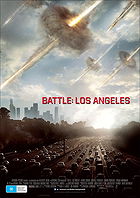
 0 comments,
0 comments, 